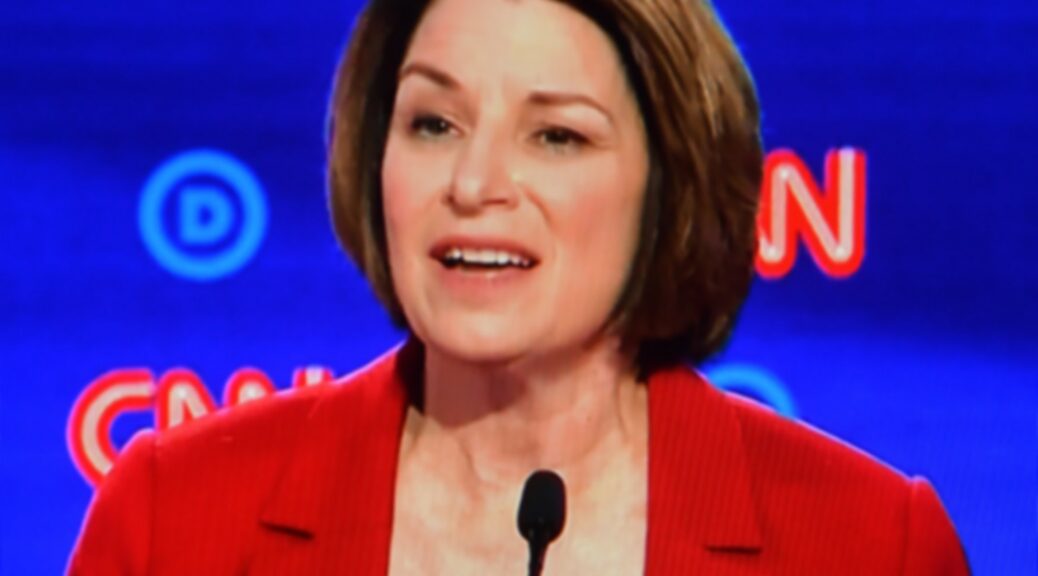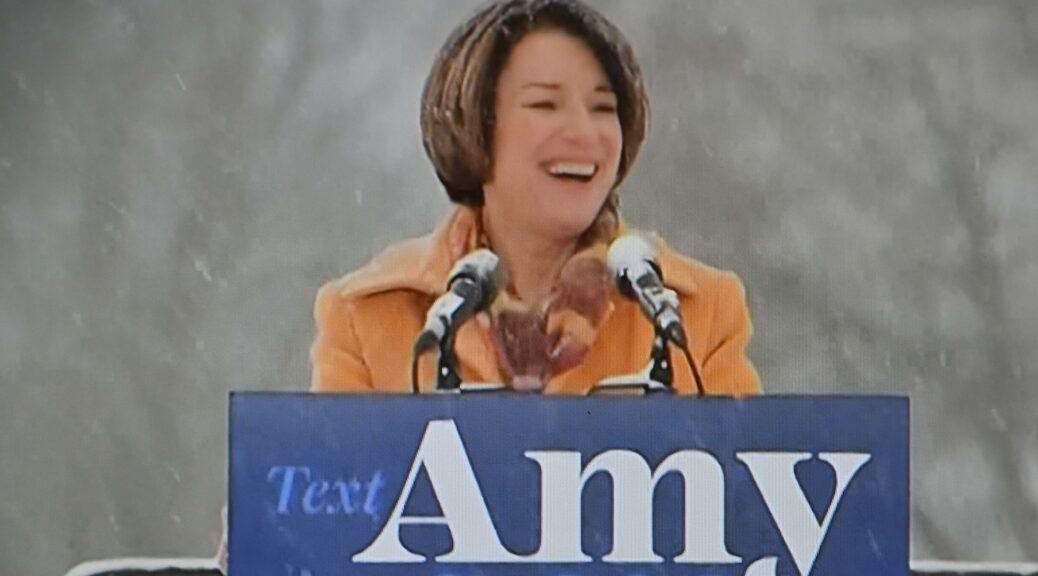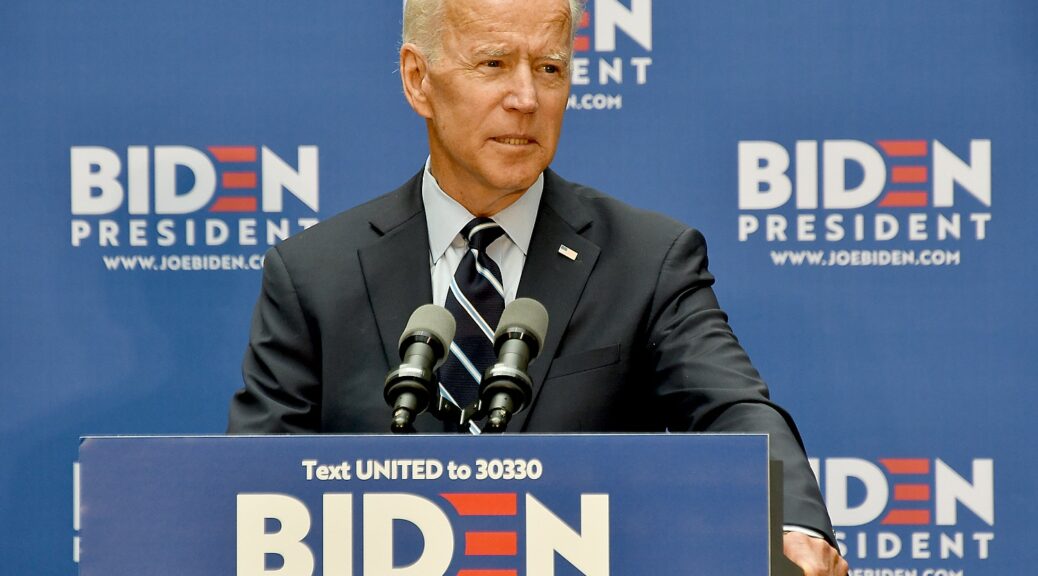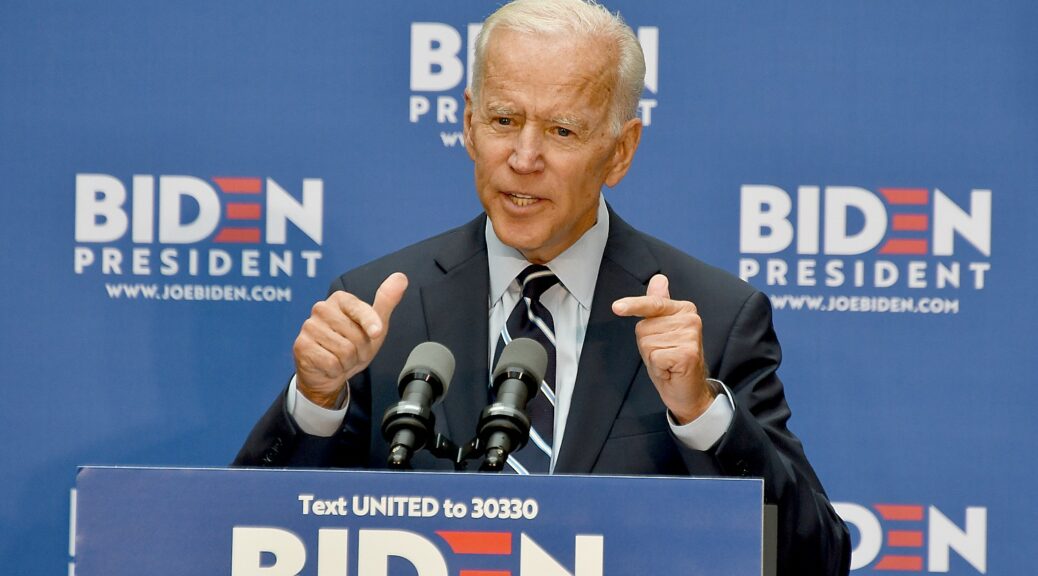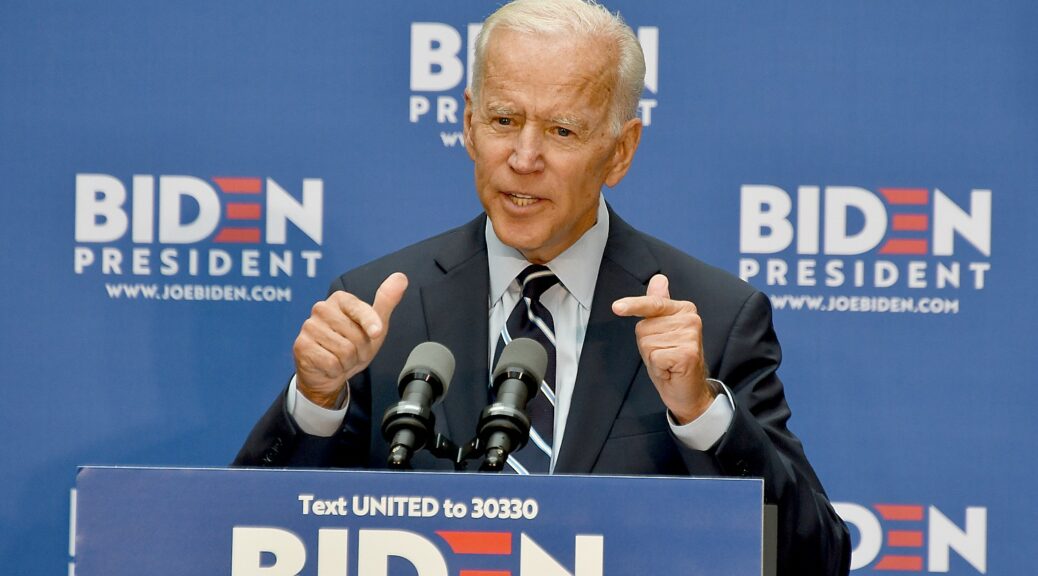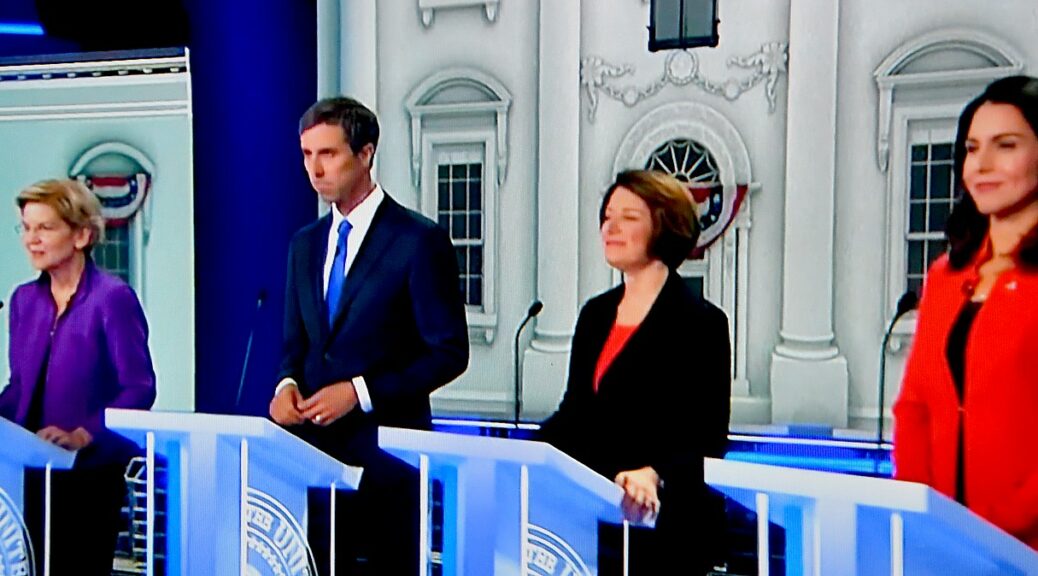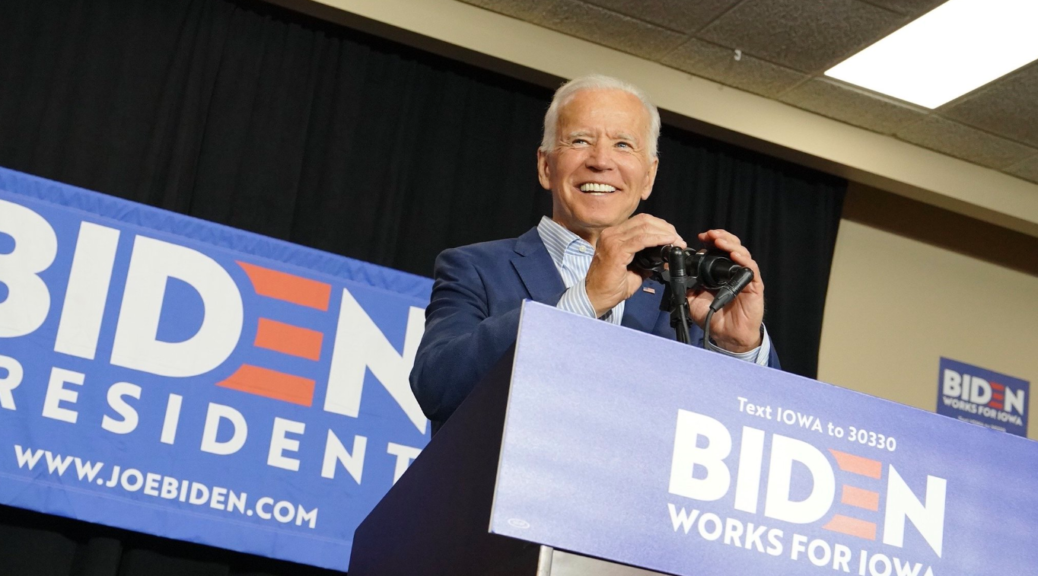
The vigorous contest of Democrats seeking the 2020 presidential nomination has produced excellent policy proposals to address major issues. Senator Amy Klobuchar’s “Plan from the Heartland” seeks to strengthen agricultural and rural communities. This is a summary from the Klobuchar campaign:
MINNEAPOLIS, MN — Senator Amy Klobuchar is proposing a plan for America’s Heartland that will strengthen our agricultural and rural communities, bridge the rural-urban divide, and make sure that kids who grow up in rural America can stay in rural America. Senator Klobuchar knows that America’s prosperity depends on the success of our farmers and as a senior member of the Agriculture Committee, she’s been a champion for farmers and rural communities in the Senate. Her plan builds on her record of getting things done for rural America and as President, she will:
1. HEARTLAND ECONOMICS
Support our farmers. Our farmers are facing significant uncertainty as a result of recent floods and other natural disasters, unprecedented market consolidation, low commodity prices, and uncertainty surrounding market access in some of our biggest export markets. As President, Senator Klobuchar would invest in growth opportunities like renewables to raise farm incomes and create good paying jobs, and maintain and expand critical safety nets.
- Expand commodity support, disaster programs, and federal crop insurance for our small and family-owned farms. As a senior member of the Agriculture Committee, Senator Klobuchar worked to write and pass three farm bills with strong farm safety nets for our farmers. As President, Senator Klobuchar would push to index farm safety net support levels to reflect changes in our country’s cost of production, low commodity prices, and loss of global market access. She would also work to improve and fully fund permanent disaster programs and improve support levels, loan rates and program delivery. Senator Klobuchar also supports improving and expanding commodity support and federal crop insurance programs and increasing the average premium subsidy for crop insurance. And as dairy farms continue to close, Senator Klobuchar would convene a commission to immediately address the dairy crisis.
- Strengthen the Animal Disease Vaccine Bank and prioritize crop and livestock health. Strengthening our agricultural disease prevention, surveillance, and response capabilities is critical to our farmers and livestock producers, as new emerging diseases like African Swine Fever could cause billions in damages should they reach the U.S. Senator Klobuchar understands that we need to be doing everything we can to prevent catastrophic disease outbreaks before they start, and if we do have an outbreak, we need to be prepared. She authored and passed provisions to create a disaster response program and a foot and mouth disease (FMD) vaccine bank to protect farmers against the next disease outbreak. As President, she will fully fund disease eradication programs, support new research, and push for additional emergency support for farmers, producers and ranchers impacted by agricultural diseases.
- Ensure safety net programs are targeted to help family-owned and small farms and beginning farmers and make sure farmers know about all the available support programs. Senator Klobuchar has repeatedly led efforts to reform the farm support payment system, including an income cap on eligibility for commodity payments. As President, she will work to ensure payments are directed toward those who need them most, including small and family-owned farms. She would enforce the prohibition against artificial subdivision of farms to avoid limits and work to protect family farms from cuts scheduled under the terms of any budget act. Senator Klobuchar will support regional food systems and also create and expand programs that educate farmers on available programs and opportunities including by supporting existing outreach and extension programs through our land grant universities.
Promote exports and drive job growth. With 95 percent of the world’s customers living outside our borders, opening up new markets and lowering trade barriers is critical to our agricultural and rural economy. Our farmers produce food, fuel, feed, and fiber, and they need export markets where they can sell their products. Senator Klobuchar will direct her administration to create a national rural export strategy to coordinate efforts across agencies and review all international tariffs in place as of 2021 and she will build on her work in the Senate to continue to increase access for U.S. agriculture producers. In her first 100 days as President, she will restart the President’s Export Council, which brings together business, labor, and agricultural leaders with Members of Congress and key Administration officials to help promote a comprehensive export and trade strategy.
Invest in rural infrastructure and transportation. Rural areas are a major focus of Senator Klobuchar’s $1 trillion infrastructure plan, and she will require a new Infrastructure Financing Authority to make investments in rural areas. As President, Senator Klobuchar will invest in the repair and improvement of rural bridges that are not part of the federal-aid highway network and invest in the Harbor Maintenance Trust fund to improve inland waterways and ports, including funding for the Navigation and Ecosystem Restoration Program to modernize and expand outdated locks and restore ecosystems along the Mississippi. She will direct additional resources to help close the backlog in USDA’s Water and Waste Disposal Loan and Grant Program. To keep rural and general aviation airports strong, she will continue support for the Essential Air Service and Airport Improvement Program.
- Bring high-speed broadband to every household and business in America. Broadband creates jobs, opens new economic opportunities, and allows America to compete and succeed in an increasingly digital world, but roughly one in four rural Americans say access to high-speed internet is a major problem. In an effort to close the rural-urban divide, Senator Klobuchar has previously announced a commitment to connect every household in America to the internet by 2022. She will focus on creating accurate broadband maps to identify areas that lack adequate access, bringing high-speed internet infrastructure to areas most in need, including by expanding Rural Utility Service grants, and providing greater incentives for existing providers to upgrade their networks to cover unserved and underserved areas. She will also work to quickly implement the recommendations of the Precision Ag Connectivity Task Force to help farmers fully realize the potential of broadband in their operations.
- Revitalizing freight and passenger rail. Railroads provide a vital link between rural communities and a cost-effective way for producers to bring their goods to market. As President, Senator Klobuchar will encourage investment in short-line and freight rail networks. She will also address safety concerns including two-man crews, better braking systems, and ensuring communities are prepared to respond to derailments involving hazardous cargo. She will also build on her work pushing for greater competition in freight markets by providing fair treatment for captive shippers, appointing well qualified members to the Surface Transportation Board, and reviewing and addressing consolidation in the freight rail industry. She is also committed to expanding Amtrak service in rural America.
Expand opportunities for rural small businesses, entrepreneurs and beginning farmers. Rural America is home to many innovators and entrepreneurs, but we need to do more to help give them the tools they need to succeed and expand job opportunities in rural areas. Senator Klobuchar will strengthen USDA programs that support entrepreneurs like the Value-Added Producer Grants, Rural Microentrepreneur Assistance Program, Intermediary Relending Program, and Agricultural Innovation Centers. She will promote regional cooperation to facilitate economies of scale among businesses, development organizations, government programs, and community area anchor institutions. She will also fully implement and support the Farm Bill provision restoring the USDA’s Under Secretary of Rural Development so that rural development remains a top priority for the department.
- Expand access to capital and loans for small and family-owned farms. Senator Klobuchar has worked successfully in the Senate to increase the caps on Farm Service Agency loans to ensure farmers and ranchers have access to the land and capital they need. As President, she will push to further increase the maximum loan amount that an individual farmer or rancher can receive under the direct farm ownership and operating loans, where some loans are reserved for beginning farmers. At the same time, Senator Klobuchar will work to increase the size of Farm Service Agency’s loan portfolio to ensure more farmers are able to access this critical lending source. She would also make sure that equipment updates — that allow farmers to take advantage of technology and innovation — are readily available and that loans and credit are targeted to small and family-owned farms.
- Strengthen rural small business lending. Small businesses in rural areas face additional obstacles in accessing credit because many traditional lenders do not have the infrastructure and experience to effectively serve rural America. As President, Senator Klobuchar will expand and strengthen USDA’s Business and Industry Loan Guarantee Program and the Rural Business Investment Program, which supports start-up of venture capital firms, and she will continue support for the Farm Credit System. She will continue to support sensible regulation of community banks and credit unions, which are important sources of credit for rural businesses. She will push to reauthorize the New Market Tax Credit and make sure it effectively serves rural America. She will also improve controls to ensure government programs designed for small businesses actually serve small businesses.
- Support agricultural research. The Trump Administration has repeatedly proposed budgets for USDA that cut billions for rural development, conservation, and research. These include the forced closure of agricultural research laboratories and stations. In her first 100 days as President, Senator Klobuchar will re-open these laboratories and give these important programs the support they deserve. She will also publish all government-funded studies on climate change conducted by in-house scientists and in collaboration with land-grant universities. And she will halt the arbitrary relocation of USDA scientific agencies which has resulted in staff attrition and decreased capacity.
- Support our new and beginning farmers. Senator Klobuchar believes if we want to continue to maintain our country’s agricultural strength and keep our rural communities vibrant, we need to do more to support our new and beginning farmers and ranchers. As a Senator she has authored several provisions that would expand loans and land transitions to beginning farmers. As President, she would push for a new tax credit for farmers who sell land or equipment to beginning farmers and expand assistance to beginning farmers and ranchers so that they have better access to land, capital, and risk management tools. Senator Klobuchar has also been a champion in the Senate for permanent mandatory funding for the Beginning Farmer and Rancher Development Program, and as President she would continue to promote efforts with non-profit and university partners to provide farm business education and on-site trainings for beginning farmers.
Promote rural workforce development to connect people to jobs and address workforce shortages. Senator Klobuchar will address rural workforce shortages and close the skills gap by promoting apprenticeships so students and workers can get on-the-job training. She will direct her Secretary of Labor to analyze the use of apprenticeships and expand apprenticeship opportunities and benefits in rural areas. Senator Klobuchar is also committed to passing comprehensive immigration reform in the first year of her presidency. Immigrants accounted for more than a third of rural population growth from 2000 to 2018 and comprehensive immigration should include providing a pathway to citizenship and updated policies that will help rural communities get the workers they need when they need them.
- Expand student loan forgiveness to help our farmers. Senator Klobuchar has proposed a loan forgiveness program — modeled after the public service loan forgiveness program — that would forgive federal student loan debt for in-demand occupations that will include farmers and people who choose careers in agriculture.
Agricultural Competition and Concentration. The concentration across agricultural markets and steep decline in family farms have resulted in an increasingly anti-competitive industry. Senator Klobuchar is committed to reducing barriers for family farmers and promoting fair, transparent practices that increase competition.
- Taking on consolidation. Senator Klobuchar will look at large acquisitions and mergers in the agriculture industry that have already happened and assess whether the integration of services insulate agricultural corporations from competition. She will also make sure that our antitrust agencies have the resources they need to aggressively enforce our antitrust laws. And she will give antitrust agencies and courts the legal tools necessary to promote competition by updating legal standards, shifting the burden of proof for mega-mergers to the merging parties to show that their transactions do not reduce competition, clarifying that existing antitrust laws should take into account more than price and should consider vertical integration, harms to innovation, and monopsony, where a buyer has the power to reduce wages or the prices it pays for agricultural products. As President, Senator Klobuchar would also require the USDA to collect and publish concentration information in agricultural markets and allow the USDA to participate in the review of proposed mergers in the agricultural sector. As President, her Administration would thoroughly review our agriculture laws and assess their application in an environment with increased market concentration.
- Support strong enforcement by the Commodity Futures Trading Commission (CFTC). The CFTC budget has stagnated in recent years making it difficult for the commission to do its job. Senator Klobuchar will provide the CFTC with the resources to make sure our commodity markets work, encourage the commission to put the needs of farmers first in all of its decisions, and move aggressively to stop price manipulation in energy and other markets.
- Restore staffing levels at the Department of Agriculture. Under the first two years of the Trump Administration, between December 2016 and March 2018, USDA had more staff departures than any other federal agency. This has severely impacted USDA’s ability to carry out its mission on behalf of rural communities and farmers. During her first 100 days as President, Senator Klobuchar will restore staffing levels to the appropriate levels. She will also stop politically-motivated relocations that result in the loss of critical agency expertise.
2. LIVING IN RURAL AMERICA
Expanding rural health care and saving our rural hospitals. As President, Senator Klobuchar would revise our Medicare rules to help rural hospitals stay open, provide expanded support to our critical access hospital and community health centers, over half of which are located in rural areas, and dramatically expand telehealth services. To address rural workforce shortages, she will build on the Conrad 30 program that allows international doctors trained in the United States to extend their stay in the country if they agree to practice in underserved communities. To further bolster the health care workforce Senator Klobuchar will expand student loan forgiveness programs for health care and long term care workers practicing in underserved areas. She will also reform Medicare telehealth rules that unfairly limit coverage and reimbursement.
- Preserve and strengthen rural hospitals. Over 100 rural hospitals have closed since 2010 and more than more than a third of rural hospitals, providing care to almost 12 million Americans, are at risk of closing. As President, Senator Klobuchar will help hospitals in rural areas stay open by creating a new Rural Emergency Hospital classification under Medicare to give hospitals more support if they maintain an emergency room and provide outpatient services.
- Provide sustainable reimbursements for rural health care providers. Today, inadequate reimbursement from federal health programs that do not take into account the additional costs of rural health providers puts significant pressure on the rural health care system. Senator Klobuchar will adjust Medicare’s geographic practice cost index to reflect the actual costs of providing health care in rural areas. She will also provide ongoing financial relief by ending the two percent Medicare automatic reimbursement cut for rural hospitals.
- Tackle rural mental health and addiction. Mental health and addiction services are often lacking in rural areas where accessibility, availability, affordability and acceptability may be limited. For example, 65 percent of non-metropolitan counties do not have a psychiatrist and almost half of non-metropolitan counties do not have a psychologist. As President, Senator Klobuchar will strengthen mental health and addiction programs in rural America by investing in and expanding the Farm and Ranch Stress Assistance Network, tackling the opioid epidemic and increasing access to mental health and substance use care, including support for clinics and community-based services, as well as technical support and telehealth services. She will address the challenge of farmer suicide, while also focusing on recruitment, retention, training and workplace protections for the mental health and substance use health care workforce in rural areas and our hardest hit communities.
Support rural education and public schools. On average, rural districts receive just under 20 percent of state education funding and have smaller student populations, so they’re often disadvantaged by funding formulas. And higher transportation costs for students who live in rural areas can often mean even less money for instruction. As part of her previously announced “Progress Partnerships” Senator Klobuchar will help improve rural schools by encouraging states to create funding formula commissions to improve equity and establish equitable school infrastructure funding mechanism.
- Empower community colleges to be community hubs for economic development and workforce training. In many rural areas, local community colleges provide key economic development and workforce training resources for the community. Senator Klobuchar will work to better integrate federal business and workforce development programs with local community colleges building on the Small Business Administration’s successful Small Business Development Centers.
- Invest in land-grant universities agricultural research. Recognizing the long standing contributions of our land-grant universities to innovation and development in agriculture, as well as their central role in their communities, Senator Klobuchar will also expand resources available to these schools for capital projects, research and extension programs.
Address child care and energy costs and expand access to affordable housing. Many Americans want to live and work in rural communities but cannot find an affordable place to live. More than 50 million Americans live in rural areas with a severe need for more affordable rental housing. Senator Klobuchar will strengthen rural rental assistance programs, increase investments in the rural housing supply. We also need to cut red tape and improve communication among local, state, and federal officials so renters, communities, and developers have access to information about the programs available in rural America. Senator Klobuchar will also strengthen protections for mobile home owners.
- Directly address the challenge of rural child care: Rural communities experience unique challenges when it comes to child care, as nearly two-thirds of rural families live in a child care desert, or an area where there are at least three young children for every licensed child care slot — or no licensed child care providers at all. As President, Senator Klobuchar would expand assistance for child care, with a focus on rural areas by increasing funding for the Child Care and Development Block Grant and increasing the subsidy rate so that rural child care providers can more easily meet their operating expenses and increase the quality of their programs. She would also work to pass a landmark childcare proposal limiting child care payments to 7 percent of a family’s income and making targeted investments to build the supply of licensed child care in rural child care deserts.
- Make energy costs affordable. Recognizing that rural households pay a significantly higher share of their income on energy costs than the national rate, Senator Klobuchar will also will preserve and expand resources for LIHEAP and the Weatherization Assistance Program, which helps households in need reduce energy spending. Senator Klobuchar is a strong supporter of the Rural Energy for America program and Rural Energy Savings program so that farmers and rural communities can access renewable energy solutions that lower their costs.
3. PROTECTING OUR FUTURE
Expand conservation practices. Senator Klobuchar has been a champion of supporting farmer conservation efforts and promoting farming practices that reduce soil erosion and improve air and water quality, including by helping pass the 2018 Farm Bill, which included several of her priorities. As President, she will support significant new investments in conservation of working and retired lands. Senator Klobuchar will support the continued expansion of the Environmental Quality Incentives Program and increase resources for the Conservation Stewardship Program to help provide farmers the tools they need to protect and enhance natural resources on working agricultural lands. And after successfully increasing the acreage cap of the Conservation Reserve Program, Senator Klobuchar will work to attract more enrollees and ensure payment rates are fair.
- Protect native sod and improve soil health. Senator Klobuchar pushed for provision in the 2018 Farm Bill that closed a loophole allowing some non-insured crops to be planted four consecutive years without a reduction in crop insurance assistance for succeeding insured crops. As President, she will expand nationwide the sodsaver’s prohibition to substitute crop insurance yields on native sod that is converted to cropland. She will also expand the Soil Health and Income Protection Pilot Program to help provide farmers an alternative to cropping less productive cropland.
- Invest in conservation innovation. Senator Klobuchar will target research into soil carbon sequestration, which could improve soil health as well as reduce carbon levels in the atmosphere. She will also expand Conservation Innovation Grants to test emerging conservation approaches, including practices that increase carbon sequestration levels. And building on provisions she included in the 2018 farm bill, Senator Klobuchar will further improve agriculture data research of conservation practices to help farmers reduce risk and increase profitability.
Investing in and providing incentives for homegrown energy. Senator Klobuchar believes that homegrown biofuels are key to our rural economies, our nation’s energy security, and reducing greenhouse gas emissions. In the Senate, she has been a leader when it comes to standing up to the Administration’s misuse of small refinery renewable fuel standard (RFS) waivers. She has also worked successfully in the Senate to provide financing and grant support to biobased manufacturers. She authored an amendment that was included in the Farm Bill that provides mandatory funding to support biobased marketing, manufacturing.
- Strengthen the RFS. As President, Senator Klobuchar will work with the EPA to continue and strengthen the RFS. Continuing to increase the required blend levels will add value to farm products, reduce the use of fossil fuels, and contribute to better air quality.
- End the overuse of secret RFS small refinery waivers. In the first 100 days of her presidency, Senator Klobuchar has pledged to end the misguided overuse of secret RFS small refinery waivers that have been granted to big oil companies at the expense of farmers. As President, she will take action to increase transparency in the waiver application process and to make sure that the market for Renewable Identification Numbers accurately accounts for the overuse of small refinery waivers.
- Promote the use of blender pumps. In addition, Senator Klobuchar will promote and invest in blender pump infrastructure by restarting and building upon USDA’s Biofuel Infrastructure Partnership, providing consumers more refueling choice and supporting the transition away from fossil fuels.
- Pass a statute to ensure year-round E15 sales. After successfully pushing for the administration to allow for the year-round sale of E15, Senator Klobuchar will also advance legislation that would allow for year-round E15 sales to remove regulatory uncertainty and help reduce the consumption of fossil fuels.
- Extend biodiesel and second generation biofuels tax credits. Senator Klobuchar has long championed tax credits for renewable energy and as President she will push to extend biodiesel and second generation biofuels tax credits.
Invest in wind and solar and support rural energy development. Clean energy, including wind and solar, is a major driver of job growth in rural areas. In fact, 99 percent of operating wind capacity is located in rural areas. A part of Senator Klobuchar’s plan to tackle climate change, she will prioritize rural energy development, including expanding storage capacity and strengthening our energy grid is critical for continuing to scale up renewable energy. Senator Klobuchar will invest in interregional transmission lines and grid improvements to support the development of renewable energy and establish a Clean Energy bond program to expand clean energy tax incentives. And as President, Senator Klobuchar will launch a grant program to help rural cooperatives develop energy storage and microgrid projects for renewable energy for generation, transmission and storage. She will also support increased investment in small, distributed wind, solar and biogas projects.
Expand energy efficiency programs. Energy costs can be a significant burden on farms, small businesses and households in rural communities. Senator Klobuchar has long worked to see that the Rural Energy for America Program (REAP) has the resources needed to provide grants to farms and rural businesses to install energy efficient technologies, and she will continue to push for additional resources.
Safeguard federal lands. Federal lands are integral to many rural economies. Senator Klobuchar is committed to preserving these lands for future generations including by restoring environmental protections repealed by the Trump Administration. She will also make sure that rural counties that host tax-exempt federal lands will receive their payments in-lieu of taxes in a predictable and uninterrupted manner.
4. LEAVING NO ONE BEHIND
Reducing child poverty in rural areas. According to the Department of Agriculture, poverty rates in rural America are still higher than in urban areas, and one in five rural households with children face food insecurity. As part of her plan to cut childhood poverty in half within ten years, Senator Klobuchar will expand the earned income tax credit, the child care tax credit, and SNAP benefits and make housing choice vouchers available to every qualifying household with a child.
- Meeting the nutrition needs of our most vulnerable citizens. As a member of the Agriculture Committee, Senator Klobuchar has always pushed for a strong nutrition title in the Farm Bill. As President, she will make sure that nutrition programs are there for families when they need them, while also strengthening employment and training programs that help get people back into the workforce. She will oppose efforts to institute draconian and ineffective work requirements and reverse the harmful rulemakings that the Trump Administration has proposed that would force millions of families, elderly, and veterans out of nutrition programs.
- Overcoming persistent poverty. Senator Klobuchar supports Congressman Jim Clyburn’s 10-20-30 proposal, which would require that a minimum of 10% of federal funds of a particular program go to persistent poverty communities, where the poverty level has been 20% or higher over the past 30 years.
Rural Veterans. Roughly one in four U.S. veterans live in rural areas, and many face challenges accessing health care and affordable housing. Building on her strong track record of supporting veterans, including our veterans in rural areas, Senator Klobuchar will focus on ensuring our veterans receive the support they deserve. As President, she will work to attract medical professionals to VA health care facilities in rural areas, invest in VA telehealth services and expand transportation options for our veterans. In addition, she will expand programs to connect veterans in rural areas to affordable housing and invest in programs that tackle veterans homelessness.
Helping farmers in bankruptcy. In many regions, farm bankruptcy rates are reaching their highest point in a decade due to persistently low commodity prices, economic uncertainty and tight farm lending regulations. As President, Senator Klobuchar will work to allow more family farmers to seek relief under Chapter 12 bankruptcy, which would allow family farmers to reorganize and keep the farm after falling on hard times. This builds off of Senator Klobuchar’s bipartisan legislation that recently passed the Senate and House. She will also promote support programs and education for farmers so they are familiar with sound farm management principles in an effort to reduce foreclosure rates.
Fight discrimination and empower communities of color. People of color make up one in five Americans living in rural areas, but too often systemic racism limits their contributions to rural economies. Senator Klobuchar will instruct all federal agencies to aggressively enforce anti-discrimination rules when it comes to housing, education, employment and wages. She will strengthen USDA’s Office of the Assistant Secretary for Civil Rights, increase diversity in senior leadership positions at USDA, and develop better metrics to accurately reflect the impact of USDA programs of people of color. She will also increase rural outreach by the Minority Business Development Administration to help minority businesses overcome social and economic disadvantages.
Partner with Native American tribes. Senator Klobuchar is committed to partnering with Native American tribes in rural areas. As President, she will end the Trump Administration’s attacks on tribal sovereignty and increase meaningful tribal consultation. She will fully support the Indian Health Service and build on her work to provide resources for tribal schools. She will work to expand broadband deployment on tribal lands including working to restore the Tribal Lifeline program, which the Trump Administration has tried to eliminate. She will also direct the USDA to increase support for tribal agricultural needs.
Supporting rural seniors. Older Americans who live in rural areas can be isolated, with fewer transportation options and limited access to other important services like transportation, health care, and affordable housing. As President, Senator Klobuchar will make sure her USDA and other federal agencies are investing in housing, health care, transportation and nutrition programs for our country’s rural seniors. She will support generous tax-credits and programs that allow seniors to remain and age in their homes as long as possible, with a focus on promoting affordable housing and long-term care options.


